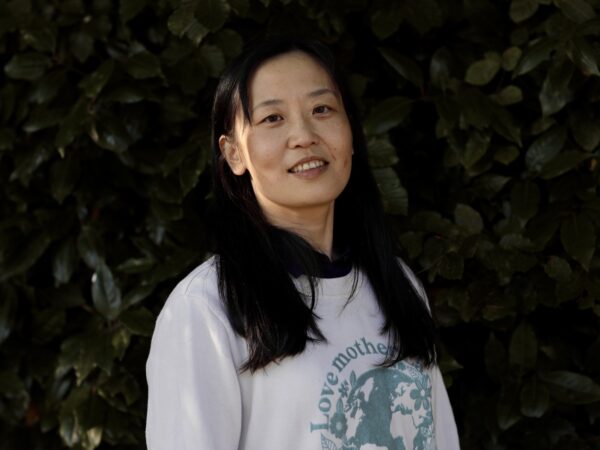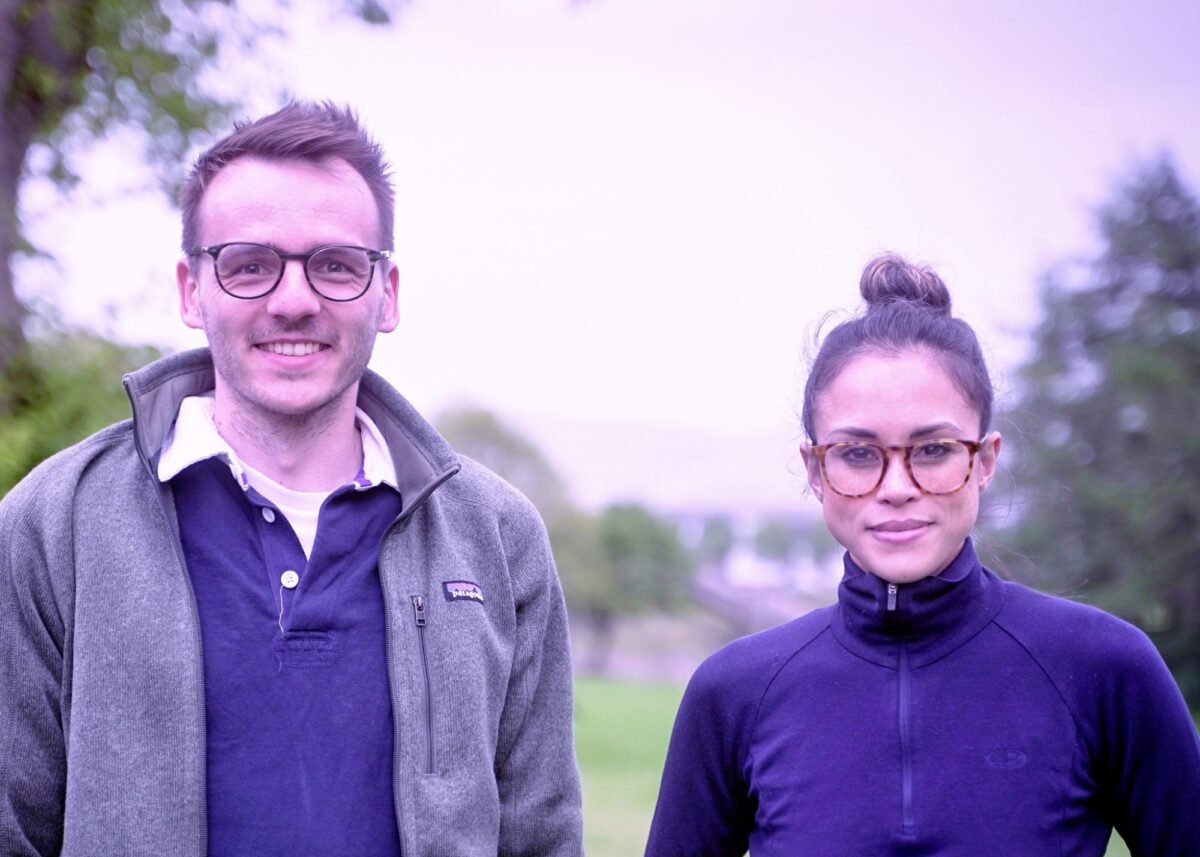
Buckle up – these Startups have their foot on the Accelerator!
Improved tech performance, cheaper and more sustainable renewable energy and better diagnostic healthcare are just three of the goals of the winners at this year’s Startup Summer Accelerator.
After an intensive 12-week programme aimed at getting them investment-ready, thirteen student entrepreneur teams pitched to expert judges for a share of £10,000 at Edinburgh Innovations’ online Demo Day on Thursday [8 September].
Data pioneers DeepQA (pictured above) took the top prize of £5,000, with AI to identify bugs in new software; second prize of £3,000 went to engineers Myriad Wind Energy Systems, who plan to transform wind power with small blades made of sustainable materials; and third prize of £2,000 went to synthetic biologists SynSense, who have created a skin patch that can diagnose illness.
Mastercard Scholars Programme winners shared an extra £5,000 – social enterprise Loozeele Initiative creates opportunities for young women in Ghana, and Cactus Mama Telemental Services is transforming mental health care in Kenya.
Dr John Lonsdale, Head of Enterprise at Edinburgh Innovations (EI), was one of three Accelerator judges, alongside Katharine Fox of Old College Capital, the University’s venture capital fund, and independent investor Michiel Smith. Lonsdale said:
It gives me hope for the future to see the quality, energy and purpose of the student startups coming through the Accelerator. It was extremely hard to decide on the winners.
At EI, we look forward to continuing to support these brilliant entrepreneurs on their journey, and to seeing the potentially huge impact their work will have. ”
Advances in AI
Marise Treseder met DeepQA co-founder Tom Cartwright in 2020 during their master’s in Artificial Intelligence. Marise said: “Tom had been a quality assurance tester for software, and we talked about using the computer vision field of AI to produce a more accurate, automated test for bugs. Currently the process involves a lot of manual input from developers: introducing bias and slowing the process, plus it produces a lot of false positives.
“We hope to develop a piece of tech that will enable companies and individuals to perform better through technology, and we want to increase diversity in the data science workforce. As a female founder who is only half British, I hope to provide opportunities for others.”
She said the Accelerator cash will allow DeepQA to do more feasibility testing. She said: “From our advisor Ross signposting opportunities, to the programme’s structure and teaching helping us to clarify our proposition, the Startup Accelerator has allowed us to move through the development process much, much faster.”
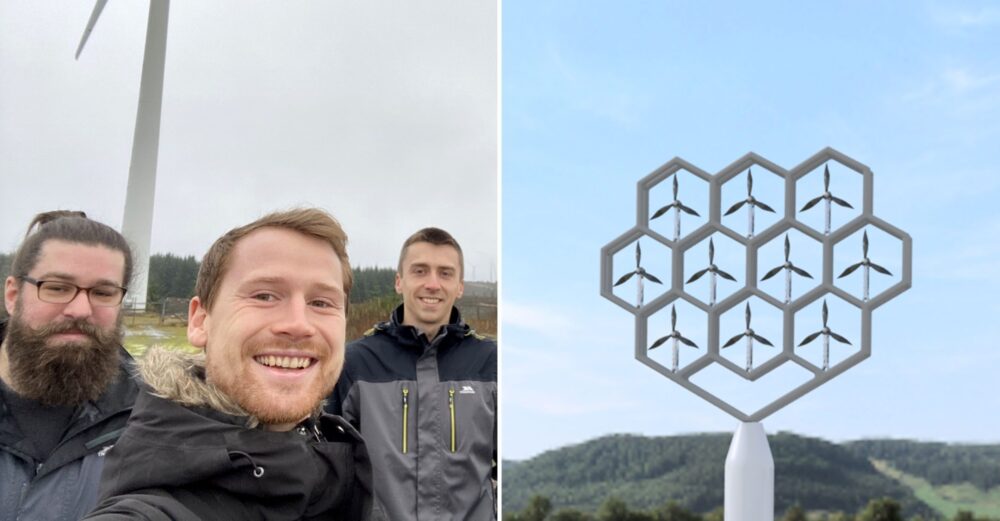
Putting the wind up traditional turbines
Renewable energy PhD researcher, Adam Harris, met Strathclyde PhDs Peter Taylor and Paul Pirrie through the Wind and Marine Centre for Doctoral Training programme. In Myriad Wind Energy Systems, they have combined their expertise to develop multi-rotor wind turbines that will disrupt the monopoly of huge blade turbines.
They are also exploring alternative materials to the non-recyclable fibreglass currently used in turbine blades.
Adam said: “We are very grateful because the Accelerator money will allow us to file our first patent.
“A transition to net zero can’t come soon enough, and having an impact on that would be amazing. Traditional wind turbines are running into problems of logistics and supply chains and ultimately will end up in landfill because of what they’re made of. Yet onshore wind is one of the cheapest ways to increase energy – improving it is really a no-brainer during this energy crisis.”
He added: “I would urge anyone with an idea to get involved with EI – there’s so much help available. If you want to build a startup, it’s the perfect place to do it.”
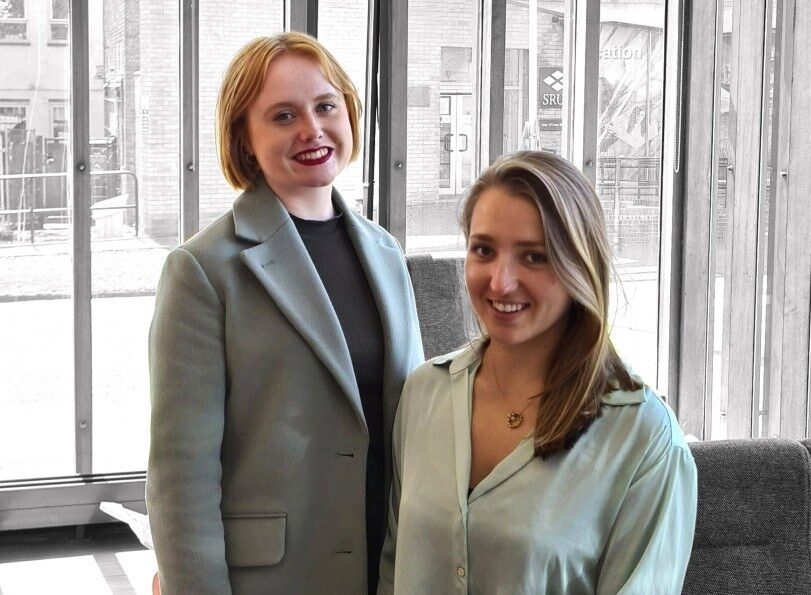
Seeing sense
Biotech company SynSense is the commercialisation of Maggie Hicks’ PhD: developing a low-cost skin patch that uses sweat to diagnose illness. But it’s thanks to her business partner, fellow synthetic biology PhD Florentina Winklemann, that she took things further. Florentina said: “I just thought, this is so good, we have to do something with it! I went to a talk at Edinburgh Innovations, met with an advisor…and now here we are!”
The pair will use their winnings of £2,000 to pay their computer science intern, Ishan Mishra. Maggie said: “The US Navy is interested in our project because they want to develop low-cost wearable sensors for non-invasive monitoring.
“Ultimately, I’d like it to be a medical device – for instance to help kids with learning disabilities who are terrified of needles and blood samples – having a diagnostic patch will make things so much easier.
“Getting involved with EI has been a huge learning curve, and has given us invaluable confidence. I would never have started this if Flo hadn’t said ‘we need to start a business’.”
Watch a video featuring Florentina Winkelmann and SynSense.
Mastercard winners
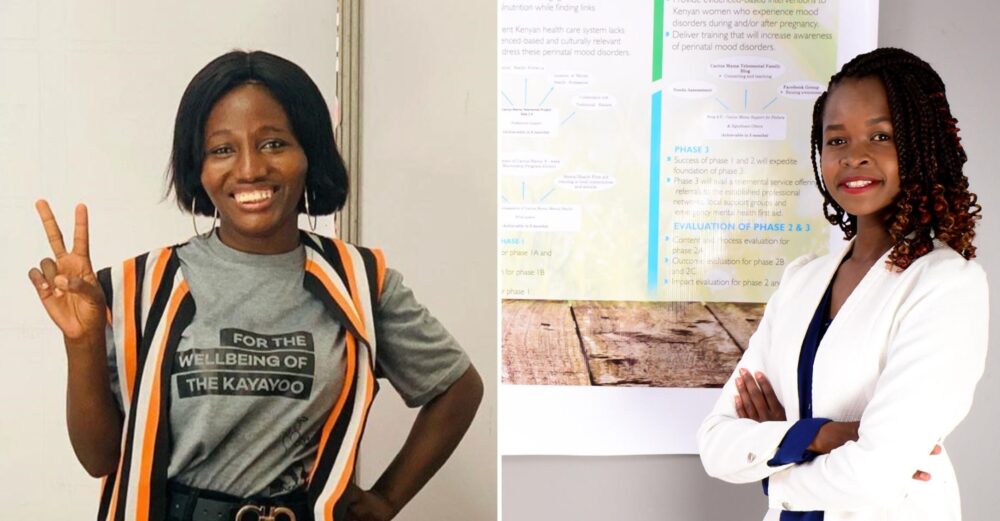
Opportunities for girls in Ghana
Social enterprise Loozeele Initiative won top prize amongst the Mastercard Scholars, who join the Summer Accelerator as part of their programme. Founder Teni Agana said the £3,000 will allow Loozeele to help another 100 Ghanian girls working as Kayayei – head porters, who carry heavy goods for shoppers – find an alternative future.
Like Teni herself at the age of 15, these girls often leave their home in the rural north to earn money for their families in southern cities, but find themselves in unstable and dangerous living situations. Loozeele teaches them crafting and business skills to enable them to make an income whilst returning to home and schooling.
Teni said: “Through the Accelerator, I gained confidence in myself and my business, and identified alternative markets for Loozeele products and ways to reduce costs. I also met a whole new network I will definitely stay in touch with.”
Transforming mental health in Kenya
Cactus Mama Telemental Services founder, nurse Faith Kipkemboi and her team won £2,000 for their app that provides remote therapy to patients in Kenya. Faith said: “Patients might have to travel three hours to find any mental health services. Now they get help through their smartphone.”
“We set out to do something noble, but the Accelerator has helped us turn Cactus Mama into a sustainable business.”
